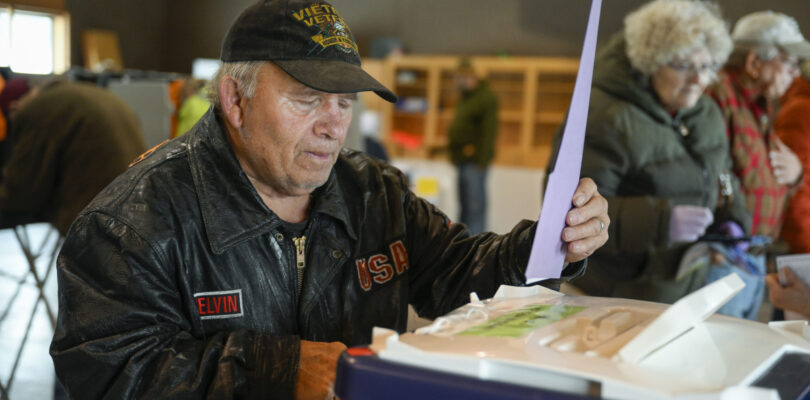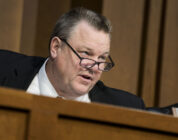The concept of recruiting veterans and military family members to volunteer at the polls this Election Day works to boost people’s confidence in the voting system, a University of Maryland study found.
The study, published Tuesday, was conducted by the university’s Center for Democracy and Civic Engagement, which consulted with the nonprofit We the Veterans. The nonpartisan group has spent the year recruiting veterans and military family members to serve as election workers, believing they were the key to quashing skepticism and restoring confidence during a time when disinformation is eroding trust in U.S. elections.
The study proves that idea, said Ben Keiser, co-founder of We the Veterans.
“This study confirms our hypothesis that veterans and military families — who have already demonstrated their unwavering commitment to our country — serving as poll workers help to strengthen public confidence in elections,” Keiser said.
The study involved 1,263 people across the country who were representative of the adult population in the United States. That population was split into two groups, with each receiving a written story, modeled off of news articles, about recruitment efforts of elections workers in Maricopa County, Arizona.
One story said elections officials were recruiting veterans and military family members, while the other story said officials were looking for volunteers from the local community, without reference to any specific demographics.
After reading the vignettes, the groups were asked questions about whether the voting process would be fair, safe and accurate.
Vet the Vote recruits nearly 160,000 veterans as election workers
Those participants who read the story about veterans and military family members being recruited to work the polls were 7% more likely than those who read the other story to express confidence that their votes would be counted accurately. Among those who said they questioned the legitimacy of President Joe Biden’s election in 2020, confidence rose by 15% after reading about the recruitment efforts.
The group that read the story about veterans and military family members were 9% more likely to say the elections workforce would be committed to their jobs and 7% more likely to say that the voting process in Maricopa County would be fair and safe.
That group was also 8% less likely to be worried about potential violence, threats and intimidation at the polls, and 5% less likely to be concerned about voter fraud.
“The findings of this study are timely and crucial for the 2024 elections,” said Michael Hanmer, director of the Center for Democracy and Civic Engagement. “That sizable portions of the public lack confidence in our elections is a serious problem. Our study provides powerful evidence that recruiting veterans and military family members to work at polling places not only strengthens public trust in the process but also addresses concerns about potential threats to election security and violence at the polls.”
The findings led the University of Maryland to recommend that election officials create their own programs to recruit veterans and military family members to work the polls and make it known to the public when people from those communities are working in their precincts.
We the Veterans estimates that one out of every five election workers in November will be a veteran or a military family member. Through its Vet the Vote campaign, the group recruited more than 163,000 volunteers across the country.
Between 800,000 and 1 million temporary workers will staff polling locations across the country next week, said Thomas Hicks, chairman of the U.S. Election Assistance Commission. Those workers welcome and check in voters, issue ballots and explain how to use voting equipment.
“It is likely that our elections workforce is already populated with significant numbers of veterans and military family members. Where this is the case, our results suggest that publicizing this information can help increase confidence in elections,” the study reads.
This story was produced in partnership with Military Veterans in Journalism. Please send tips to MVJ-Tips@militarytimes.com.




